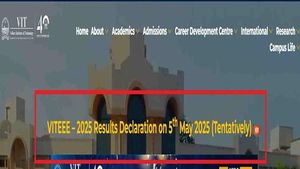The tug-of-war over the hosting of the Champions Trophy 2025 has taken center stage as both the Pakistan Cricket Board (PCB) and the Board of Control for Cricket in India (BCCI) find themselves ensnared in complex negotiations. With the event set to showcase top cricketing talent from around the world, the stakes are exceptionally high, not only for the teams involved but also for the cricketing boards and their respective governments.
Initially slated to be hosted by Pakistan from February 19 to March 9, 2025, the Champions Trophy has become embroiled in lasting political tensions between India and Pakistan. Since 2008, these two cricketing giants have only participated against each other during multi-team events, with matches being staged under highly controlled conditions far from home territory. The last significant face-off was during the Asia Cup, where India opted to play all their games on neutral ground — Sri Lanka, according to sources.
Even as Islamabad plans for this prestigious event, India has shown reluctance to send its cricket team to Pakistan, citing safety concerns. This reluctance was made official as the BCCI communicated its inability to participate, stirring speculation and widespread anxiety about the future of the tournament.
Recent developments have seen the ICC attempting to mediate between the boards. Reports indicate the ICC provided both countries with what has been referred to as an “acceptable formula” to bridge their divides, yet progress remains sluggish. The cricket boards have been instructed to consult with their foreign ministries before any concrete decision can be made.
Despite the ICC’s numerous meetings, consensus has yet to be reached. The latest meeting was set for November 30 but has now been pushed back to either Sunday or Monday, as highlighted by former cricketer Rashid Latif. Sources have indicated both boards are striving for a middle ground but are yet to break the stalemate. They are expected to use this time to assess possible outcomes and seek guidance from their diplomatic channels.
There have been disagreements about whether to pursue the hybrid model proposed by India, which would see India playing its matches on neutral grounds. The PCB has firmly rejected this model, stating it violates the principle of reciprocity — if Pakistan is to host, then both teams should play on each other’s turf.
PCB Chairman Mohsin Naqvi has been vocal about Pakistan's stance: "Pakistan's izzat (respect) is of utmost importance. We're ready to host, but any formula must reflect equality between the two boards, and we won’t entertain any agreement without substantial justification. What is being proposed as the hybrid model won't work for us. We must stand firm on our position."
This assertion emphasizes Pakistan’s commitment to ensuring any decision involving the Champions Trophy reflects their standing and respect on the international stage. Naqvi also pointed out the extensive planning and investment Pakistan has put forth to prepare for hosting rights, highlighting the logistics involved.
The PCB is adamant about not backing down in these negotiations and indicates it will not shy away from taking the matter to vote if no resolution surfaces. Meanwhile, the BCCI continues to seek government endorsements for the Indian team's travel across the border, which remains unclear at this point. The failure to resolve the hosting issue is increasingly drawing criticism from cricket fans and pundits alike, raising questions about the efficiency of the ICC's governance.
Looking back at the broader picture, this unprecedented tension between the boards reflects the long-standing political undercurrents between the nations. Cricket has often served as both a bridge and battleground for these neighboring countries. With the permanent state of affairs being largely diplomatic, any movement toward resolving the Champions Trophy hosting impasse will require careful navigation through political sensitivities.
With many eyes on the developments, fans and cricket analysts are left wondering what the outcome will be and if reconciliation is possible, or if the circumstances will compel cricketing ties to remain fragile. For now, the cricketing world can only wait patiently as the ICC continues to seek resolutions, and hopefully salvage what could be one of the most significant events on the global cricketing calendar.
Despite the tensions, one thing remains clear: both nations understand the weight this tournament holds, and the potential it has to unify fans across borders – if only they can lay down their political differences to embrace the spirit of the sport. It’s clear the stakes are high, and the eyes of cricket fans globally are watching to see how this drama plays out.
Whether the future of the tournament lies on Pakistani soil or somewhere else remains to be seen, but there is hope yet for common ground among cricket’s fiercest rivals. The upcoming meetings will be pivotal, and the potential for agreement is layered with complexity, but if history has taught fans anything, it’s this: cricket always finds a way.



